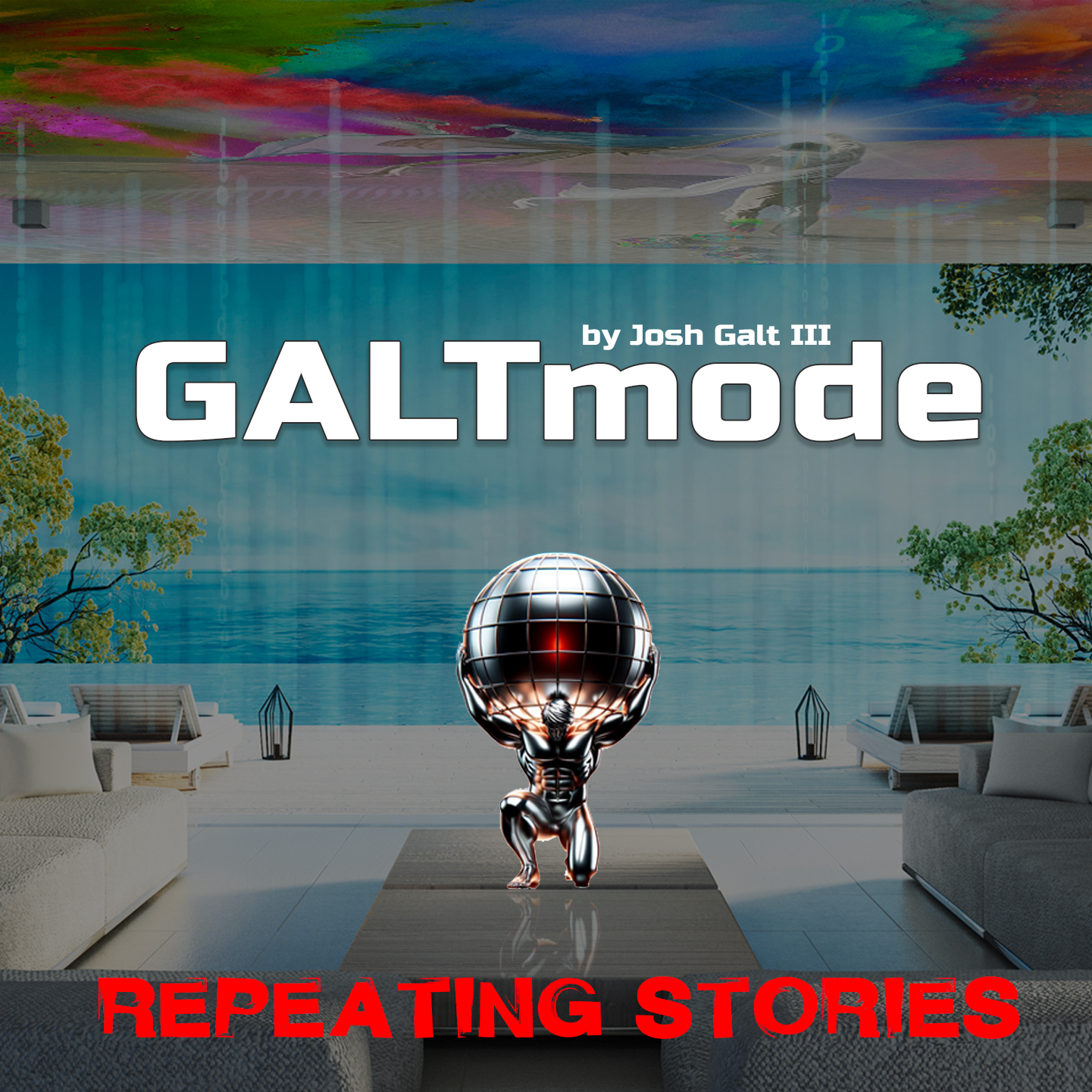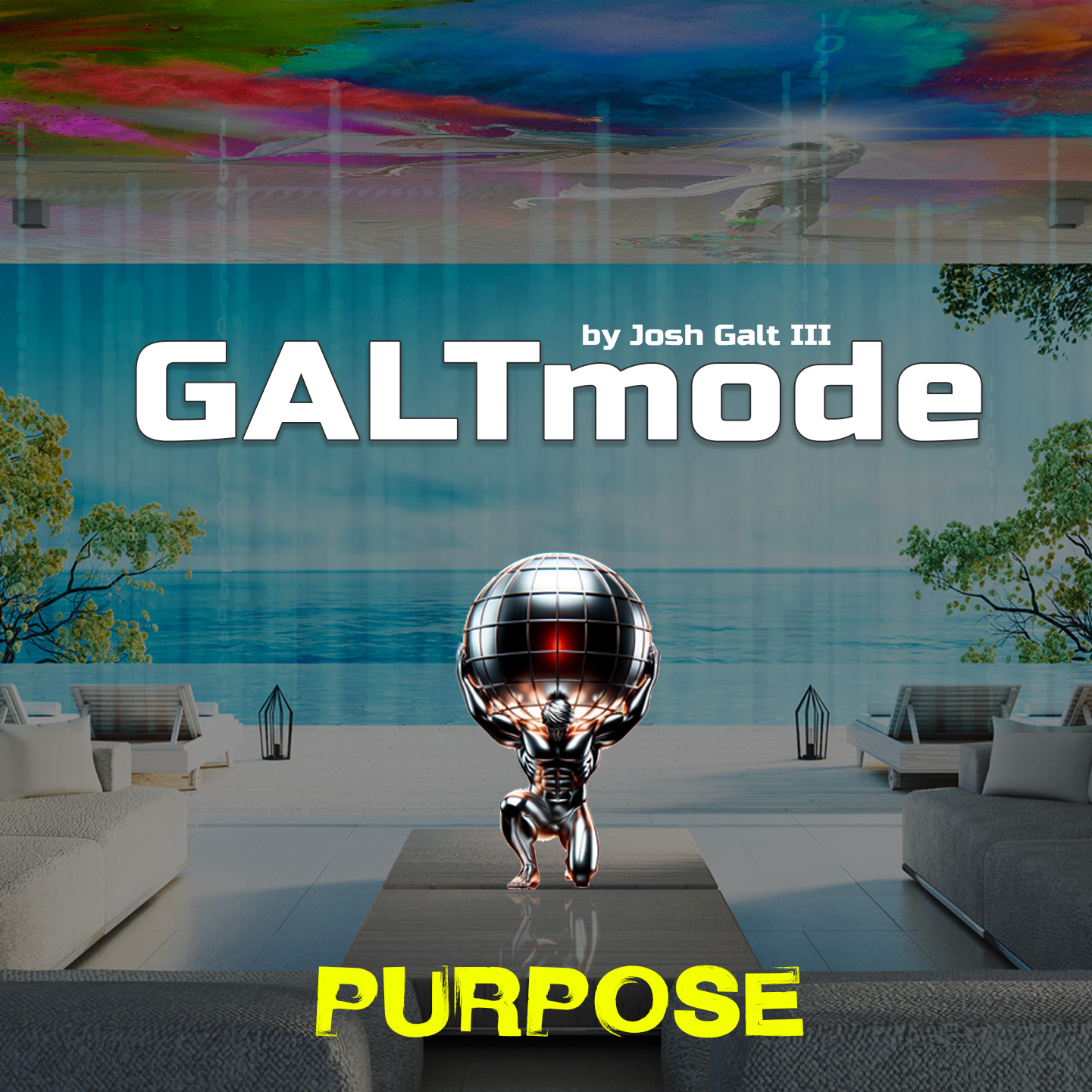Episode Transcript
[00:00:00] True or false, our lives are an experiment. Somebody said something to me recently and it really made me think because the context was about child raising, about kids. They said, we are not experiments. And I was thinking, no, actually I disagree with that. Life is one grand experiment. Life is about learning lessons. And so everything matters and nothing matters, because all there is are lessons. Life is an experiment and we have to take risks. We have to try new things. We. We have to have a hypothesis and a goal, and then we have to test that, and often we fail. And so the idea that we are not experiments, the idea that we should not be experimenting at all, one. It's an appeal to authority. It's saying whatever the system tells me, I'm going to believe unquestioningly, because I am not an experiment. And so therefore I'm going to trust the science. Right, that's. That's one way of looking at that. Another way is simply risk avoidance, which is, I know that doing these methods and these things have kept generations alive. And so I don't want to try something else because it's risky. Because, yeah, it hasn't been perfect. Yeah, maybe there's health issues or maybe there's psychological issues or whatever it is throughout the generations, but we're still here. So why would I want to try something different? That's risky. We don't know for sure what the outcome will be. But for me, that's one of the most exciting parts of life, is taking the entirety of human knowledge that we have access to with the Internet, with artificial intelligence, with our collective shared wisdom that is now in our pockets, on our phones, or on the computer, and investigating and looking at what may be possible, looking at what happened a hundred years ago, how people lived, how people survived, how people did certain things. What were the results? And that's really the biggest thing for me is what are the results? So if someone is doing something, say, non traditional, outside the norm, because Brian Johnson with this don't die thing, he gets so much hate, and it doesn't make any sense because you think that people would be cheering him on. He's spending millions of dollars of his own money to figure out how he can age backwards. Okay? So you can hate on him and say that he's probably going to die anyway or that he's going to have an accident and die before his time or whatever. Like, these are all horrible things to be saying. You should just be inspired by what he's doing in biohacking and looking at the data and figuring things out in a way that no one's ever done before. Not because you want to live forever in a transhumanist way. That's not the goal at all, but because maybe the things that he is doing will allow for a better quality of Life for your 80 to 100 years. Imagine if you still felt like you do when you're 30 or 40, when you're 80 or 90, imagine if that was the big difference. Wouldn't the millions of dollars that he is spending and the testing that he's doing on himself, the experimenting he's doing on himself, be of great value to humanity and to you yourself specifically? I think so. I appreciate what biohackers have done. I've done lots of experimenting on my own self into vegan was a three and a half year experiment of vegan plus insects on how healthy can I be with the majority of my protein. Coming from insects was crazy, but it was interesting and I learned a lot about things that weren't even related to insects through the process. So that's the. One of the great benefits of experimenting is you may learn things that have nothing to do with your original hypothesis simply by accident because you're taking risk because you are experimenting and many things are possible, including failure. Yeah, I guess when it comes to kids, I've always looked at it as I want to be better than the previous generation. Not in an arrogant way. Let me rephrase that. Well, that is true. It's better if I phrase it a different way. I want my kids to be better than me. That's what matters. Doesn't matter if I do things better than my parents and my ancestors. I want my kids to be better than me. And so I'm going to be honest about the process. I'm going to teach them how to think, not what to think. I want to teach them to be sovereign individuals who can look at life as objectively as possible, who can live passionately, who can be obsessed with things and not be ashamed of that. I want them to be better than me in every way. And that requires some experimentation because we know what works and we know what doesn't work. At least I do. Right. And so I can take my entirety of experience and knowledge and everything that I can read and learn from the experiences of other people and from researchers and from scientists, psychologists, people like Carl Jung. There's a whole treasure trove of information that we have access to and so read things you disagree with, take the good, leave the bad, but have some type of a framework that you know is going to provide Some rails, some guardrails so you don't go off into crazy things that could be life threatening or dangerous or whatever. But to where, yeah, you have to experiment. Every individual is different. Every human life is different. Every kid is different. You can't do the same thing with every single one of them. If you are at all familiar with homeschooling or the unschooling movement, you've seen the meme where all the animals are at the outdoor schoolhouse and the teacher gives the assignment. And you have a mix of animals, right? You have an elephant, you have a giraffe, you have a fish, you have a frog, dog, you have like a beaver, a dog, whatever. A bunch of a mix of animals. And the assignment that the teacher gives is go climb that tree. Of course, everyone can see the absurdity of that being an assignment for that group of animals. Maybe one of the animals, a monkey or something will be able to climb the tree, the rest of them won't. And yet that's what the school system is. It tries to teach everyone the exact same way, the exact same thing. And that's not how humans are. And so experimentation is required. I think as a good parent, you have to be willing to experiment within those guardrails and with intentionality. Just like everything else in life, you have to have intentionality in why are we doing these things? What is the desired outcome? What are the risks and what are the rewards? And if the upside greatly outweighs any potential downside and you can mitigate the downside, you can mitigate your risk as much as possible to where any consequences would be very, very short term, whereas the rewards of success would be very, very long term. Of course you want to experiment. I don't want to live vicariously through my kids. I, I know what that is like. I've seen that. I've also lived that in my own experience. You know, why, why didn't I go to Dartmouth on a football scholarship or Princeton or Brown or Cornell or Yale or Harvard or Columbia? They all recruited me super hard. Why didn't I go there? Well, because I was chasing the dream. So I walked on. I tried to walk on at Arizona and I ended up walking on a Montana for a year. That was my dad's dream. I would have just been happy to play and at that stage a couple decades ago, get an Ivy League education and Ivy League network. That probably would have been the correct decision. I didn't make that decision because I didn't have the guidance to really look at it objectively. I wanted to make pops happy. And of course, the dream of, you know, chasing big time football in college and NFL. Yeah, that's enticing. Not to be, obviously, but that was somebody else's dream. I would have just loved to play and be in a place that I enjoyed for four years instead of transferring. And I mean, in the end, I have no regrets, I guess, but I don't want to do that to my kids. So because I like a certain type of instrument in music, or because I like a certain type of art, or because I like a certain sport, well, I'm not going to force them to do anything. I want my kids to be better than me. And so that's going to require some experimentation for me as a parent and also for them as individuals growing up. They have to understand that they should be free to experiment and fail because they have to find out what they love, what they're passionate about, what they're obsessed with, and then pursue that, find their purpose through that. And you can't do that without experimentation. And yes, experimentation involves risk, but failure is a part of life. And all there is are lessons. Whether success or failure, all there is are lessons. And so whether you're a kid or a parent, I encourage you to go experiment on yourself with others that you love and care about. And you can have intentional goals of where you want to get to put those guardrails in place to mitigate risk, of course, but be willing to take some risk. Because the upside to experimentation, the upside to treading where few people have dared to go before, is that you might find something that changes your life. You might find something that changes the world, or you might just find something that you enjoy that makes your life just a tiny little incremental bit better, that is memorable as an experience or that leads to another open door or leads to meeting someone you might not have met, leads to synchronicities. If you try and just put bumper guards so that you can never end up in the gutter talking about bowling, for example. It's not as fun. There's no risk. That's not really living. Living does require risk. Life is risky because even though Brian Johnson's trying not to die, we probably are all going to die. In this human form, our spirit continues on. But this human form is to live fully with passion, not to trying to get rid of all risk so that you just walk this straight, narrow path that is whatever the system tells you is the way that you should go. Like a zombie. And I don't think that that's what was meant by the statement of we are not experiments. But at the core of it, it's a fear of failure, a fear of risk. It's a fear of really negative outcomes and very, very difficult lessons. And they suck, they hurt, they're painful. They're things that stick with you. And sometimes those failures change you. But if you're willing to learn the lesson from them, if you're willing to set aside fear and vibrate on a higher frequency, turn that fear, at least into anger, then into acceptance, then look at it logically, reason with the upside, the downside, the goal. Then go live with love, peace and joy. Take risk with joy. That's really living. That's really experimenting and experiencing what it means to be alive. That's what I want to do for myself, and that's how I want to raise my kids.
[00:11:32] Like and subscribe.


